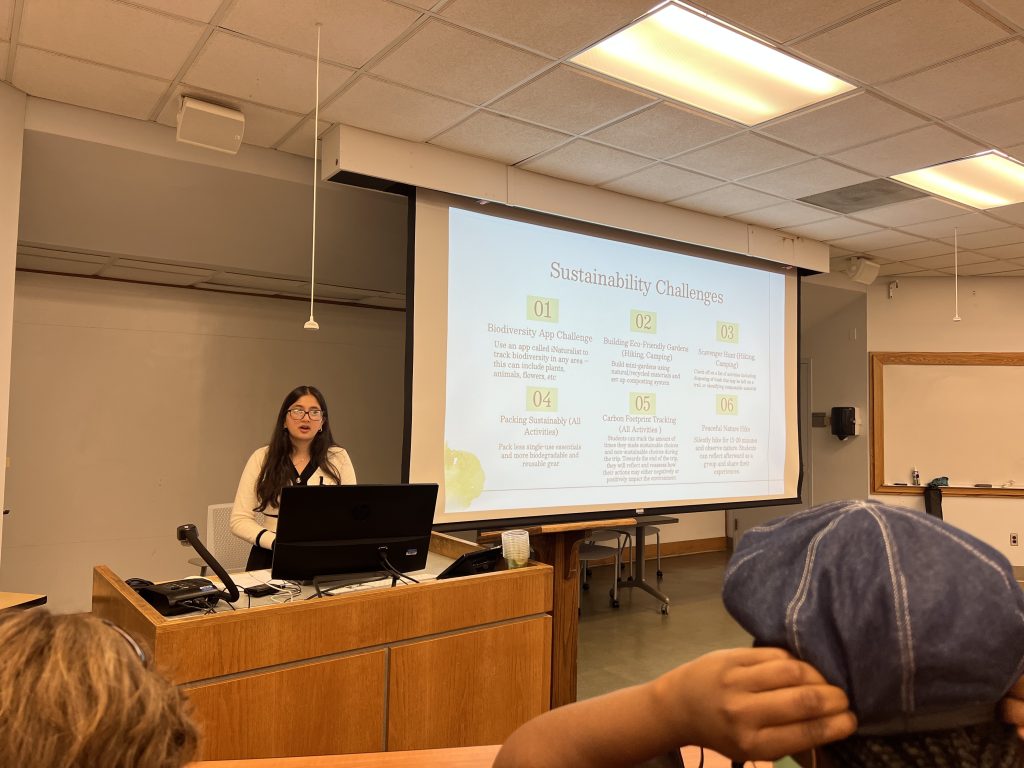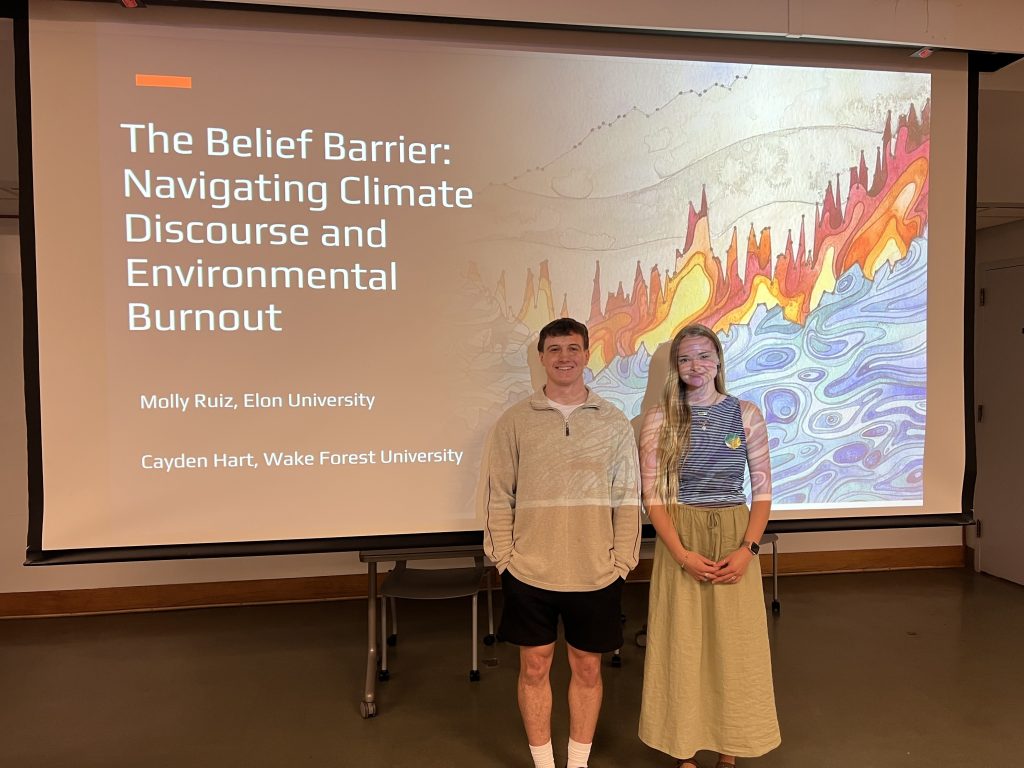On a hot, sunny weekend in early April, four Wake Forest undergraduate students traveled from Winston-Salem to Durham, NC for the Southeastern Student Sustainability Conference (SSSC) hosted by Duke University. For all four of these students, it was their first true conference experience, and they left with an expanded professional network, enhanced communication skills, and some new ideas to bring back to campus.
The SSSC aims to bring together students who are engaged in campus-based climate and sustainability initiatives from colleges and universities across the region. Its goal is to facilitate connection, community, the sharing of knowledge, and visioning in addressing common challenges and opportunities.
This year’s conference attracted nearly 250 attendees from 25 schools, composed mostly of students but also featuring many staff and faculty mentors. In addition to a variety of on-campus sustainability excursions and a keynote talk by Cameron Oglesby—an internationally awarded environmental justice advocate, oral historian, and journalist—the event showcased 17 student-led talks divided among four breakout sessions.
Two of the student sessions were led by current Wake Foresters and members of the SLG first-year sustainability leadership program. Aastha Shukla (‘27) facilitated a workshop titled “Behavioral Change in Experiential Education,” in which she discussed the efficacy of community-based social marketing, citing her work to further integrate sustainability topics and practices into Outdoor Pursuits programming.

“I was grateful to have the opportunity to speak on the topic of experiential education in sustainability,” said Shukla. “I often felt that many sustainability initiatives were passive—-tabling, seminars, talks. By incorporating sustainability activities into things students are already passionate about, I felt that a greater change could be made.”
The conference also featured a session led by Cayden Hart (‘28), who partnered with a student from Elon University to present “The Belief Barrier: Navigating Climate Discourse and Environmental Burnout.” Hart drew on his experience growing up in an area where climate science was generally met with skepticism and discussed ways to help bridge the gap when identity politics gets in the way.

These two student presenters were not Wake’s only contribution to the success of the conference, as the event was organized by Sophia Masciarelli (‘22), who spent two years as a communications intern with the Wake Forest Office of Sustainability and now serves as the Sustainability Engagement Coordinator with Duke’s Office of Climate and Sustainability.
“Being part of the 2025 Southeastern Student Sustainability Conference leadership team was truly an honor,” said Masciarelli. “We set out to create a space not just for sharing knowledge and visioning, but for building lasting connections—a community of practice where we can continue to learn, grow, and strengthen our collective resilience.”
She also highlighted the importance of such events in terms of emotional wellbeing.
“Gatherings like this remind us why we keep going,” Masciarelli said. “They underscore the power of community, the value of shared learning, and the resilience that emerges when we come together with purpose and hope.”
While the location for next year’s conference has not yet been determined, the Office of Sustainability hopes that even more of its emerging student leaders will be able to attend to collaborate, network, learn, and share the great work they are doing here on campus.
“It was so interesting to meet different people with distinct interests, but also connect in our passions for sustainability,” Shukla said. “Overall, the conference was an eye-opening and truly engaging experience to the different avenues sustainability can take.”
These types of opportunities are especially valuable as students begin to chart their path toward impactful careers in sustainability.
“I’m endlessly grateful to my mentors and peers at Wake Forest’s Office of Sustainability who helped me cultivate a strong foundational toolkit of sustainability engagement and communication strategies,” said Masciarelli.
“The lessons I learned at Wake’s ‘Susty Office’ continue to guide my work at Duke, where I strive to lead with intention, pass along that Pro Humanitate wisdom, and foster collaboration across the many teams of students, staff, and faculty I’m fortunate to work with.”
Financial support for student travel to this year’s conference was generously provided by the Andrew Sabin Family Center for Environment and Sustainability.
